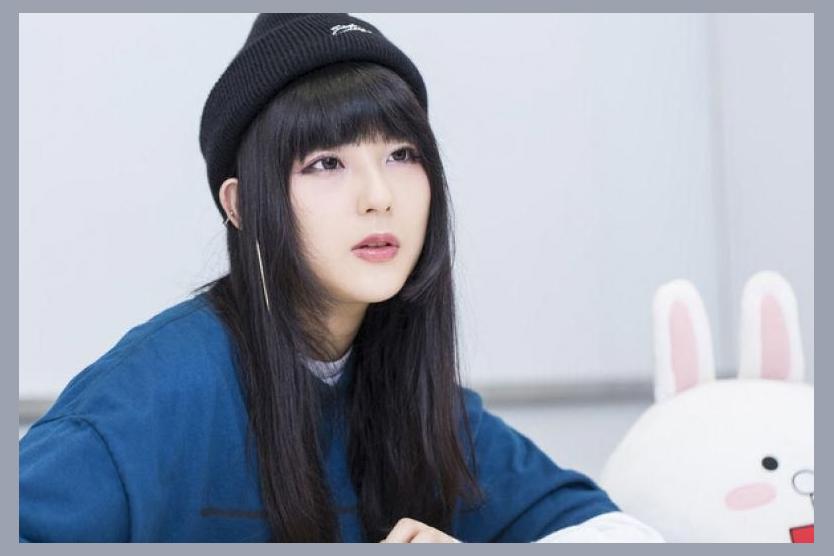 Daoko
Daoko
Daoko: Illuminating the Night Sky with Captivating Melodies
In the vibrant tapestry of Japanese music, Daoko stands out as a celestial luminary, her captivating vocals and ethereal soundscapes igniting a constellation of emotions. Her journey, like the night sky she depicts in her iconic song "Uchiage Hanabi," has been marked by both dazzling triumphs and poignant challenges.
Origins and Influences
Born in Tokyo in 1997, Daoko exhibited an innate talent for music from a tender age. Inspired by diverse influences ranging from pop and hip-hop to traditional Japanese folk, she embarked on her musical odyssey at just 16 years old. Her early tracks showcased her raw vocal power and uncanny ability to weave intricate lyrical tapestries.
Breakthrough and Collaborations
Daoko's breakthrough moment came in 2013 with the release of her debut EP, "Shibuya K". The album's infectious melodies and thought-provoking lyrics resonated deeply with listeners, solidifying her status as a rising star. Collaborations with renowned artists such as TeddyLoid and Kensuke Ushio further propelled her into the spotlight.
"Uchiage Hanabi": A Cultural Phenomenon
In 2017, Daoko's career reached new heights with the release of "Uchiage Hanabi". The song, composed for the anime series "Fireworks," became a cultural phenomenon, captivating audiences with its haunting melody and poignant lyrics that explored the ephemeral nature of love and beauty. Its music video has garnered over 100 million views on YouTube, cementing Daoko's position as one of Japan's most beloved musicians.
Musical Maturity and Discography
Throughout her career, Daoko has consistently challenged musical boundaries, expanding her repertoire from pop and hip-hop to electronica and experimental sounds. Her albums, including "Dimension" (2015), "Daoko" (2017), and "Kafune" (2020), showcase her versatility and artistic evolution.
Controversies and Personal Growth
Despite her success, Daoko has not been immune to controversies. In 2018, she was criticized for using a controversial historical image in a music video, sparking a public outcry. However, she responded with grace and maturity, issuing a heartfelt apology and addressing the concerns raised. This incident served as a catalyst for personal growth, leading Daoko to become an advocate for diversity and inclusion.
Band Members and Creative Collaborations
While Daoko is often referred to as a solo artist, she has a close-knit team of collaborators who contribute to her unique sound. Her live band, consisting of skilled musicians such as guitarist Yuuki and bassist Satoshi, brings her music to life on stage. Daoko also frequently collaborates with producers, songwriters, and artists from diverse backgrounds, fostering a vibrant and innovative creative environment.
In the vibrant tapestry of Japanese music, Daoko stands out as a celestial luminary, her captivating vocals and ethereal soundscapes igniting a constellation of emotions. Her journey, like the night sky she depicts in her iconic song "Uchiage Hanabi," has been marked by both dazzling triumphs and poignant challenges.
Origins and Influences
Born in Tokyo in 1997, Daoko exhibited an innate talent for music from a tender age. Inspired by diverse influences ranging from pop and hip-hop to traditional Japanese folk, she embarked on her musical odyssey at just 16 years old. Her early tracks showcased her raw vocal power and uncanny ability to weave intricate lyrical tapestries.
Breakthrough and Collaborations
Daoko's breakthrough moment came in 2013 with the release of her debut EP, "Shibuya K". The album's infectious melodies and thought-provoking lyrics resonated deeply with listeners, solidifying her status as a rising star. Collaborations with renowned artists such as TeddyLoid and Kensuke Ushio further propelled her into the spotlight.
"Uchiage Hanabi": A Cultural Phenomenon
In 2017, Daoko's career reached new heights with the release of "Uchiage Hanabi". The song, composed for the anime series "Fireworks," became a cultural phenomenon, captivating audiences with its haunting melody and poignant lyrics that explored the ephemeral nature of love and beauty. Its music video has garnered over 100 million views on YouTube, cementing Daoko's position as one of Japan's most beloved musicians.
Musical Maturity and Discography
Throughout her career, Daoko has consistently challenged musical boundaries, expanding her repertoire from pop and hip-hop to electronica and experimental sounds. Her albums, including "Dimension" (2015), "Daoko" (2017), and "Kafune" (2020), showcase her versatility and artistic evolution.
Controversies and Personal Growth
Despite her success, Daoko has not been immune to controversies. In 2018, she was criticized for using a controversial historical image in a music video, sparking a public outcry. However, she responded with grace and maturity, issuing a heartfelt apology and addressing the concerns raised. This incident served as a catalyst for personal growth, leading Daoko to become an advocate for diversity and inclusion.
Band Members and Creative Collaborations
While Daoko is often referred to as a solo artist, she has a close-knit team of collaborators who contribute to her unique sound. Her live band, consisting of skilled musicians such as guitarist Yuuki and bassist Satoshi, brings her music to life on stage. Daoko also frequently collaborates with producers, songwriters, and artists from diverse backgrounds, fostering a vibrant and innovative creative environment.